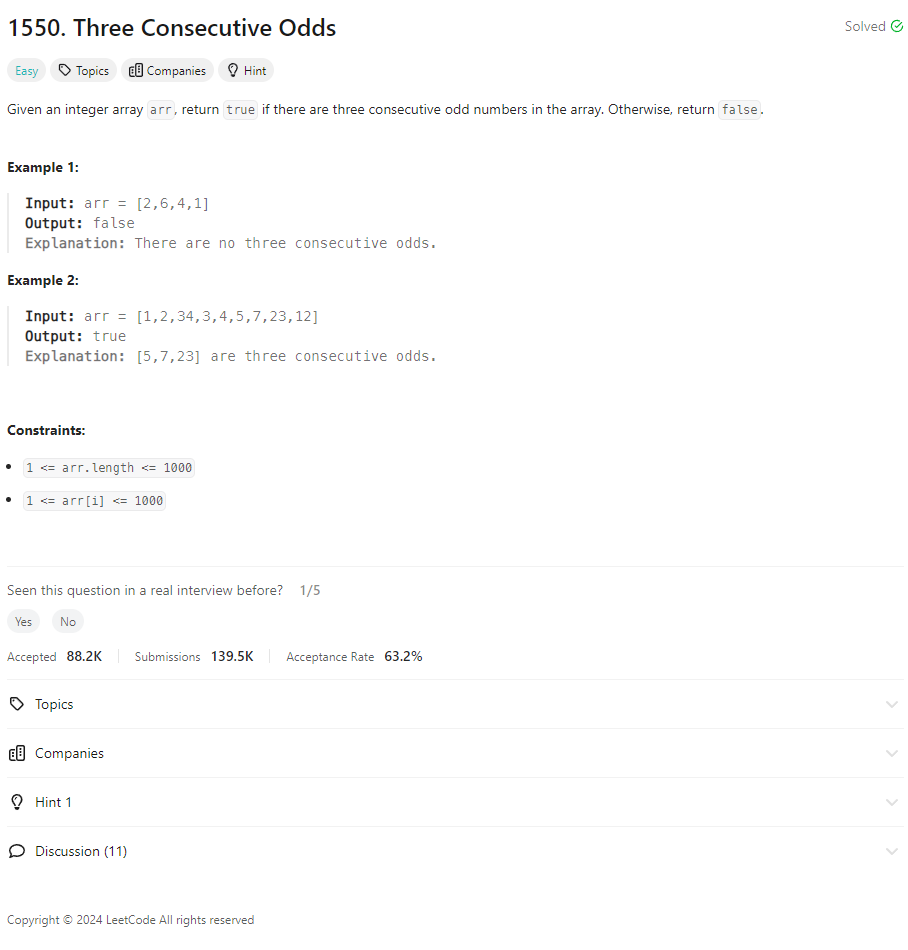Problem of The Day: Three Consecutive Odds
Problem Statement

Intuition
My first thought when solving this problem is to iterate through the array and check if there are three consecutive odd numbers. If I find such a sequence, I return True.
Approach
I will loop through the array using an index i. For each element num at index i, I will use another index j to check the consecutive elements. I will increment j as long as the elements are odd. If the difference between j and i becomes 3, it means I have found three consecutive odd numbers, and I will return True. If the loop completes without finding such a sequence, I will return False.
Complexity
-
Time complexity:
- \(O(n)\), where
nis the length of the array. In the worst case, I may need to iterate through the entire array.
- \(O(n)\), where
-
Space complexity:
- \(O(1)\), since I am using only a few extra variables and not any additional data structures that grow with the input size.
Code
class Solution:
def threeConsecutiveOdds(self, arr: List[int]) -> bool:
for i, num in enumerate(arr):
j = i
while j < len(arr) and arr[j] % 2:
j += 1
if j - i == 3:
return True
return False
Editorial
Approach 1: Brute Force
class Solution:
def threeConsecutiveOdds(self, arr: List[int]) -> bool:
# Loop through the array up to the third-to-last element
for i in range(len(arr) - 2):
# Check if the current element and the next two elements are all odd
if arr[i] % 2 == 1 and arr[i + 1] % 2 == 1 and arr[i + 2] % 2 == 1:
return True
return False
Approach 2: Counting
class Solution:
def threeConsecutiveOdds(self, arr: List[int]) -> bool:
consecutive_odds = 0
# Increment the counter if the number is odd,
# else reset the counter
for num in arr:
# Check if the current number is odd
if num % 2 == 1:
consecutive_odds += 1
else:
consecutive_odds = 0
# Check if there are three consecutive odd numbers
if consecutive_odds == 3:
return True
return False
Approach 3: Product of Three Numbers
class Solution:
def threeConsecutiveOdds(self, arr: list[int]) -> bool:
# Loop through the array up to the third-to-last element
for i in range(len(arr) - 2):
product = arr[i] * arr[i + 1] * arr[i + 2]
# Check if the product is odd
if product % 2 == 1:
return True
return False